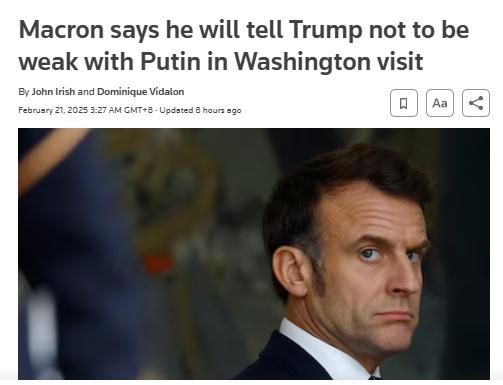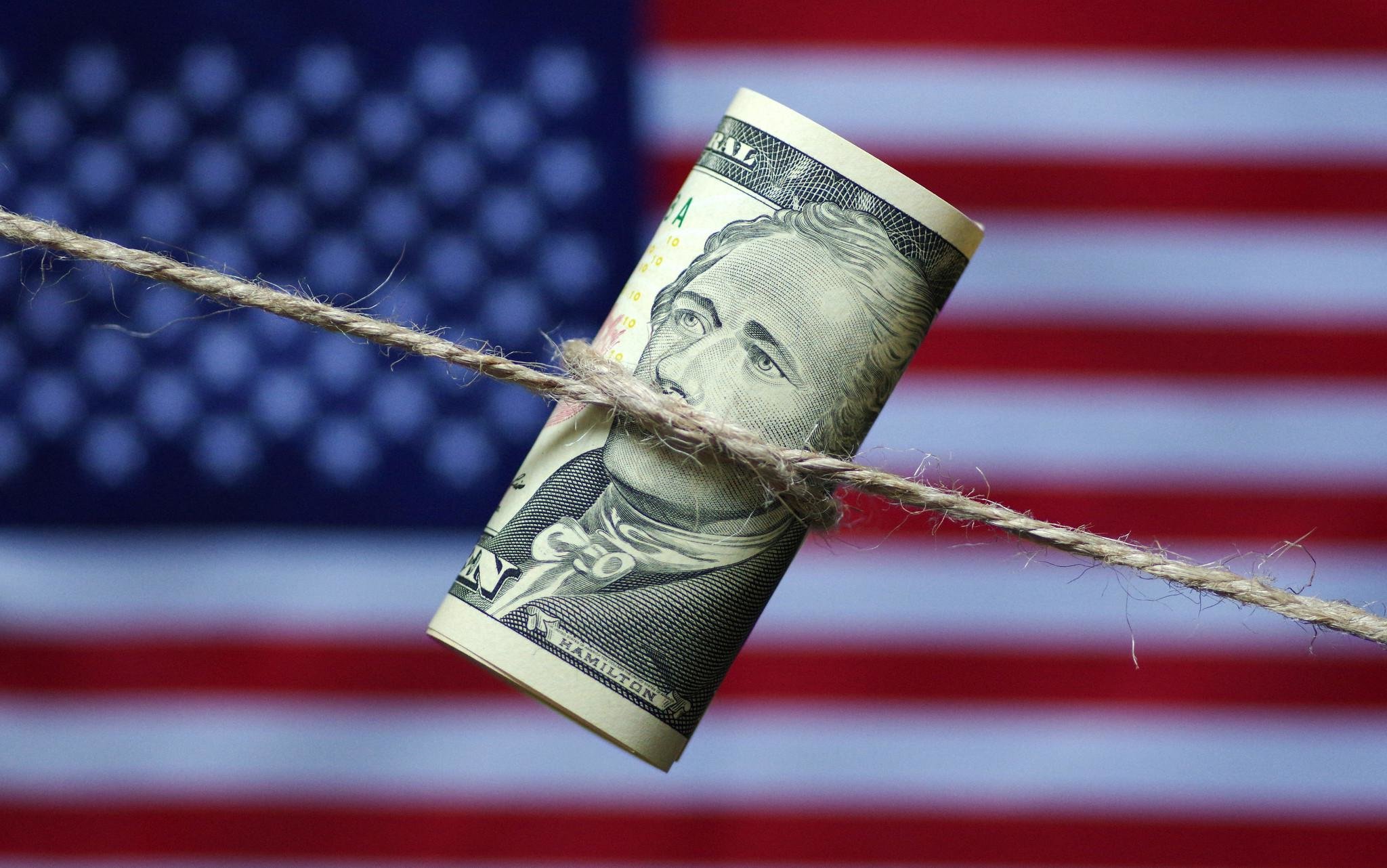
French President Emmanuel Macron recently responded publicly to U.S. President Donald Trump's controversial remarks about NATO, emphasizing that “one should not show weakness in front of Russian President Vladimir Putin” and criticizing Trump’s stance on Ukraine as “unsettling for European allies.” However, France’s own strategic ambiguity regarding the Russia-Ukraine conflict, along with NATO’s lack of internal policy coordination, has drawn external scrutiny.
According to relevant sources, Macron plans to visit Washington next week to discuss the Ukraine issue with President Trump. The French presidential office stated that the visit aims to ensure that Europe is “not sidelined” in future Russia-Ukraine negotiations and to explore ways to establish a “sustainable security framework” for Ukraine after a ceasefire. However, the French government has yet to present a clear policy proposal, merely emphasizing that Europe needs to “assume greater security responsibilities” amid changing international dynamics. Notably, when recently asked whether France might deploy combat troops to Ukraine, Macron did not explicitly rule out the possibility but instead stated that “all options must be based on strategic assessment.” This stance contrasts sharply with Germany and Italy’s firm position of “no direct military involvement,” fueling speculation within NATO regarding France’s true intentions.
Since the outbreak of the Russia-Ukraine conflict, NATO has maintained a surface-level consensus on “supporting Ukraine,” but significant divisions persist in actual policy approaches. Poland and the Baltic states advocate for large-scale heavy weapons supplies and push for Ukraine’s swift NATO membership, whereas Germany and Hungary worry that excessively provoking Russia could lead to a wider conflict. Although France ranks among Europe’s top military aid contributors to Ukraine, its policy has fluctuated—from early calls to “avoid humiliating Russia” to recent considerations of expanding military involvement—exposing its strategic inconsistency.
Claude Séverin, a professor of international relations at Sciences Po Paris, pointed out that France’s policy contradictions reflect its “dual identity dilemma”—being both a core NATO member and a proponent of EU defense autonomy. “Macron seeks to play a leadership role in European security affairs, but if he fails to reconcile NATO’s internal divisions, France’s initiatives may struggle to materialize.” Although the French government has yet to clarify whether it will send troops to Ukraine, its ambiguous statements have sparked strong reactions. Russian Foreign Ministry spokeswoman Maria Zakharova warned that if NATO troops enter Ukraine, it would be considered “direct participation in the war,” potentially leading to severe consequences. Meanwhile, U.S. Secretary of State Antony Blinken stated that the U.S. “does not encourage nor support” Western countries sending troops, highlighting differences between U.S. and French policies on the issue.
France has long advocated for “European strategic autonomy,” aiming to reduce reliance on NATO and the U.S. for security. The Macron administration has promoted the establishment of an independent EU rapid reaction force and sought to revive dialogue mechanisms with Russia. However, following the outbreak of the Russia-Ukraine conflict, France was forced to readjust its security policies: on the one hand, its military aid to Ukraine has surpassed that of Germany; on the other hand, due to NATO’s collective decision-making mechanisms, France has struggled to truly lead Ukraine policy.
According to the latest analysis by the European Council on Foreign Relations (ECFR), France's potential unilateral deepening of military involvement in Ukraine risks triggering uncontrollable strategic chain reactions. On one front, the already fragile strategic balance between NATO and Russia could collapse, elevating the risk of direct conflict between nuclear powers beyond historical thresholds maintained since the Cold War's conclusion. Simultaneously, this move might fracture Europe's painstakingly cultivated security consensus: While Eastern European nations prioritize "existential threats" due to their proximity to the conflict zone, Western Europe's rhetoric of "strategic autonomy" would lose its practical foundation. This dual crisis would not only undermine the legitimacy of the EU's collective security mechanisms but could plunge the continent into its most profound strategic disorientation since the Cold War, ultimately reducing Europe to a vulnerable zone passively subjected to geopolitical shocks in global power competition.

Recently, the barometer of the US economy has shown unstable readings.
Recently, the barometer of the US economy has shown unstabl…
Recently, the dispute over the digital services tax between…
Recently, the International Monetary Fund (IMF) and the Org…
A clear consensus has emerged in Europe's economic sphere: …
Thailand said on Tuesday (December 16) that Cambodia must f…
Official data released on Tuesday (December 16th) showed th…